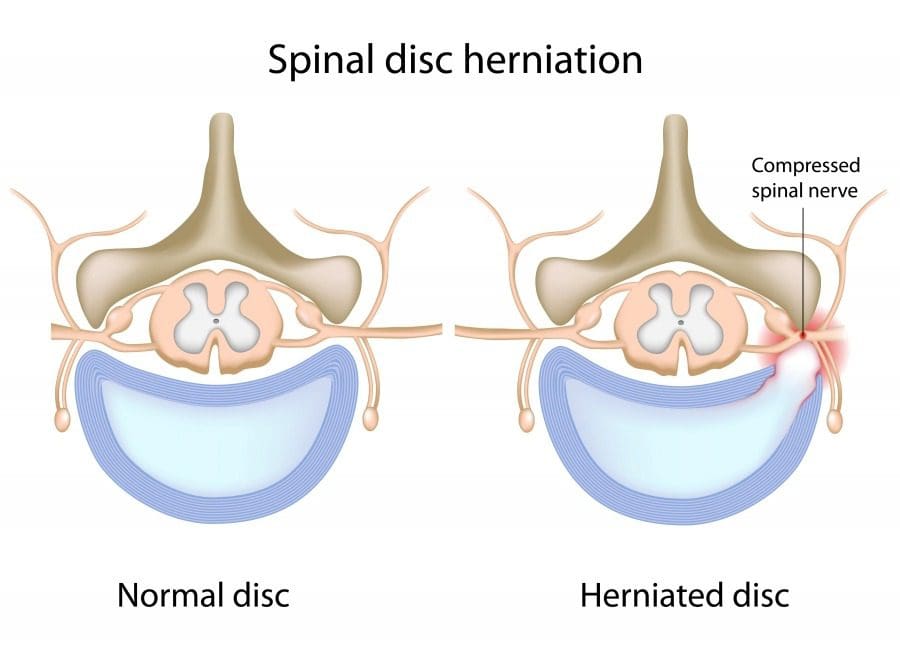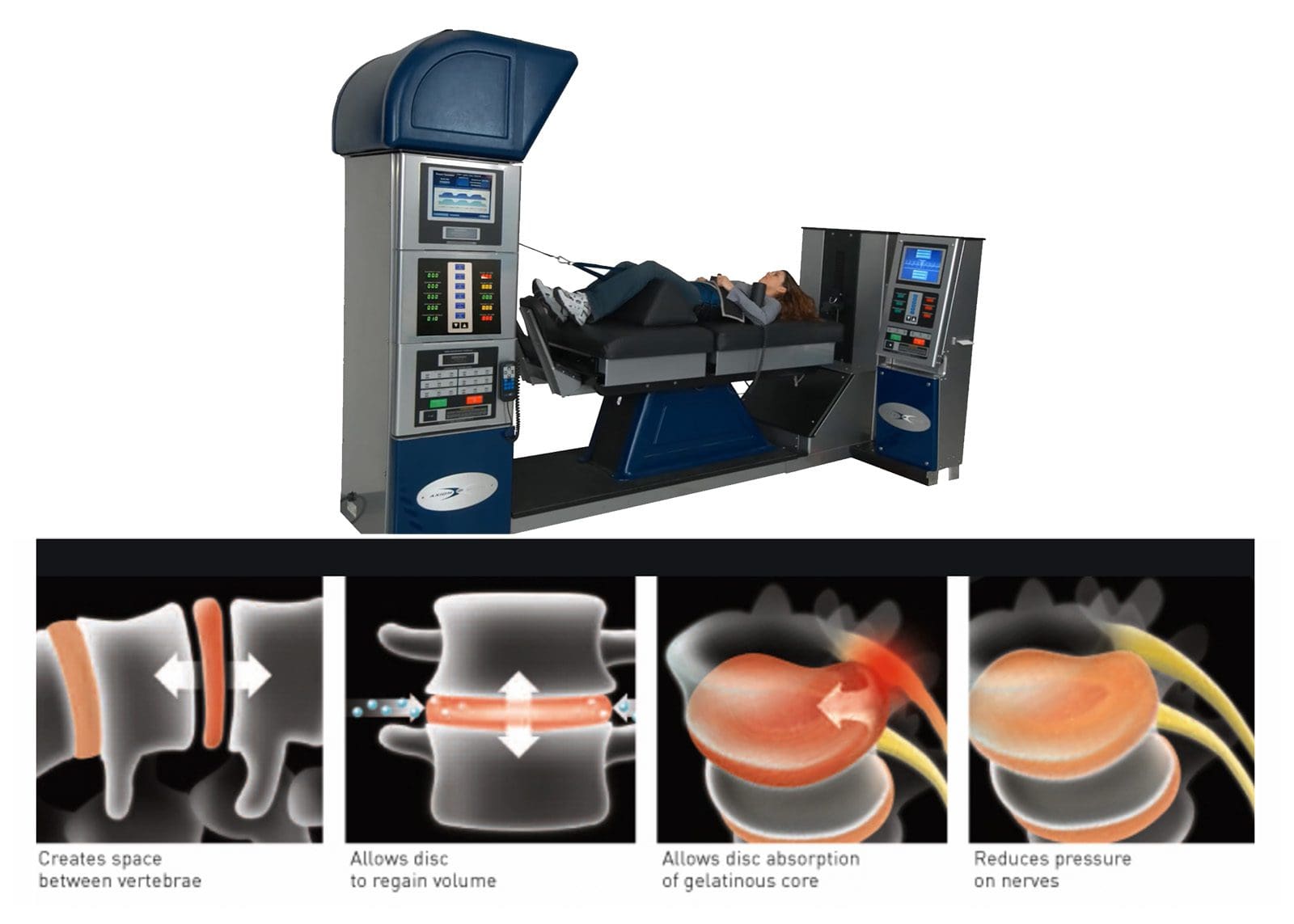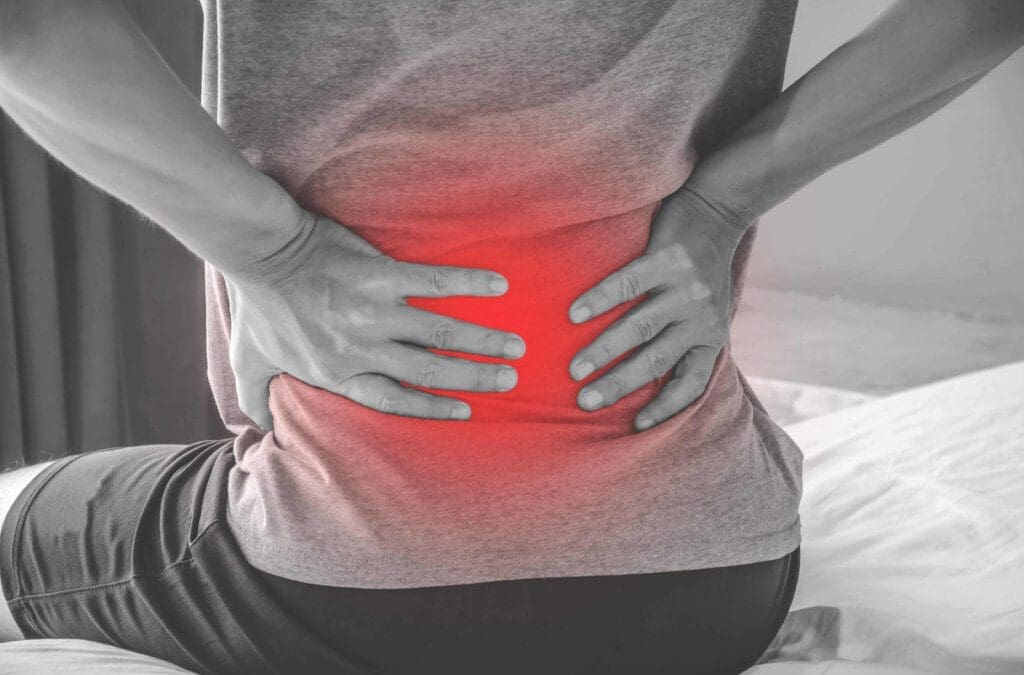Can individuals with herniated pain associated with low back pain find relief through spinal decompression to restore mobility?
Contents
Introduction
Many people worldwide have experienced pain in the back region and often complain that it affects their mobility when doing their normal routine. The musculoskeletal system has various muscles, soft tissues, joints, ligaments, and bones that help surround the spine and protect the vital organs. The spine consists of bones, joints, and nerve roots that have an outstanding relationship with the central nervous system and musculoskeletal system as the spinal cord is protected by the spinal joints and discs that have the nerve roots spread out and help provide the sensory-motor function to the upper and lower extremities. When various pathogens or environmental factors start to cause the spine to compress the spinal discs constantly, it can lead to herniation and affect the body’s mobility over time. Individuals, both young and old, will notice that the pain is not going away from home remedies and may have to seek out treatment if the pain is too much. However, it can lead to dealing with unnecessary stress when looking for affordable treatment. Today’s article looks at how herniation can affect low back mobility and how treatments like decompression can help restore the spine. We speak with certified medical providers who incorporate our patients’ information to provide various solutions to restore low back mobility to the spine. We also inform patients how treatments like decompression can restore the spine’s mobility to the body. We encourage our patients to ask intricated and educational questions to our associated medical providers about the pain-like symptoms they are experiencing correlating with disc herniation affecting the spine. Dr. Alex Jimenez, D.C., utilizes this information as an academic service. Disclaimer.
Disc Herniation Affecting Low Back Mobility
Do you often experience stiffness or limited mobility in your lower back that causes you to walk a little slower than usual? Do you feel pain in your lower back muscles from stretching or bending down to pick up an object? Or do you feel numbness or tingling sensations down your legs that feel uncomfortable? When many individuals start to do repetitive motions, that can cause their spinal discs to compress over time and eventually become herniated. When many individuals overwork their bodies, their spinal discs can eventually crack, causing the inner portion to protrude and press on the surrounding nerve root. This causes the disc tissue to have a central ballon-type cyst that causes degenerative changes, leading to low back pain and herniation. (Ge et al., 2019)

At the same time, when many individuals start to deal with lower back pain from herniated discs, they will begin to lose mobility in their lower backs. This could be due to weak abdominal muscles combined with limited mobility. When many individuals do not have strong core muscles to provide support and mobility to their lower backs, it can start with simple muscle aches, leading to constant lower back pain without treatment and negatively impacting their quality of life. (Chu, 2022) However, dealing with low back pain does not have to be tedious as numerous therapies can reduce the effects of low back pain correlated with disc herniation while restoring low back spinal mobility.
The Science Of Motion-Video
Have you ever experienced unquestionable muscle aches that radiate from your lower back and travel down your legs? Do you feel stiffness when bending down to pick up an object that causes muscle strain on your lower back? Or do you feel pain in your lower back from excessive sitting or standing? When many people are dealing with these pain-like issues in their lower backs, it can lead to a life of disability while affecting their quality of life. This is due to a disc herniation that affects a person’s lower back mobility and, when not treated right away, can lead to chronic issues. However, many individuals will seek treatment for their lower back pain and find the relief they need. Many therapeutic exercises combined with non-surgical treatments can help retrain the weakened trunk muscles to stabilize the lower back better and help reduce lower back pain. (Hlaing et al., 2021) When individuals start to think about their health and wellness, especially when they are dealing with low back pain affecting their mobility, they will find that most of the pain is from normal, repetitive factors that cause their spinal disc to be compressed and herniated. Hence, applying traction to the lumbar spine can help reduce lumbar disc protrusion that causes low back pain. (Mathews, 1968) Treatments like chiropractic care, traction therapy, and spinal decompression are all non-surgical treatments that are cost-effective and gentle on the spine. They help realign the body and help kick start the body’s natural healing factor to rehydrate the spinal discs. When many individuals start to do continuous treatment to reduce their lower back pain associated with herniated discs, they will begin to see improvements in their spinal mobility and their pain diminished. Check out the video above to look at how non-surgical treatments can help restore mobility to the body and reduce pain-like symptoms.
Decompression Restoring The Spine
When it comes to reducing pain-like symptoms caused by disc herniation that is causing limited mobility and low back pain, spinal decompression could be the answer that many individuals are looking for to incorporate into their health and wellness routine. Since lumbar herniated spinal discs are a common cause of low back pain and radiculopathy, spinal decompression can help gently pull the herniated disc back to its original position to promote healing. Since spinal decompression and lumbar traction are part of the physiotherapy treatment, they can help decrease the pain intensity from the spine and reduce the size of the herniated disc. (Choi et al., 2022) When many individuals feel relief from the gentle pull from spinal decompression, they will notice that their mobility is back. After consecutive treatment, their pain will be diminished as their spinal disc is completely healed. (Cyriax, 1950) With many individuals who are looking for numerous treatments to reduce their lower back pain and regain their sense of life, incorporating these treatments can provide beneficial results to their musculoskeletal system.

References
Choi, E., Gil, H. Y., Ju, J., Han, W. K., Nahm, F. S., & Lee, P. B. (2022). Effect of Nonsurgical Spinal Decompression on Intensity of Pain and Herniated Disc Volume in Subacute Lumbar Herniated Disc. International Journal of Clinical Practice, 2022, 6343837. https://doi.org/10.1155/2022/6343837
Chu, E. C. (2022). Large abdominal aortic aneurysm presented with concomitant acute lumbar disc herniation – a case report. J Med Life, 15(6), 871-875. https://doi.org/10.25122/jml-2021-0419
Cyriax, J. (1950). The treatment of lumbar disk lesions. Br Med J, 2(4694), 1434-1438. https://doi.org/10.1136/bmj.2.4694.1434
Ge, C. Y., Hao, D. J., Yan, L., Shan, L. Q., Zhao, Q. P., He, B. R., & Hui, H. (2019). Intradural Lumbar Disc Herniation: A Case Report and Literature Review. Clin Interv Aging, 14, 2295-2299. https://doi.org/10.2147/CIA.S228717
Hlaing, S. S., Puntumetakul, R., Khine, E. E., & Boucaut, R. (2021). Effects of core stabilization exercise and strengthening exercise on proprioception, balance, muscle thickness and pain related outcomes in patients with subacute nonspecific low back pain: a randomized controlled trial. BMC Musculoskelet Disord, 22(1), 998. https://doi.org/10.1186/s12891-021-04858-6
Mathews, J. A. (1968). Dynamic discography: a study of lumbar traction. Ann Phys Med, 9(7), 275-279. https://doi.org/10.1093/rheumatology/9.7.275
Disclaimer
General Disclaimer, Licenses and Board Certifications *
Professional Scope of Practice *
The information herein on "Say Goodbye To Herniation Pain Forever with Decompression" is not intended to replace a one-on-one relationship with a qualified health care professional or licensed physician and is not medical advice. We encourage you to make healthcare decisions based on your research and partnership with a qualified healthcare professional.
Blog Information & Scope Discussions
Welcome to El Paso's Premier Wellness and Injury Care Clinic & Wellness Blog, where Dr. Alex Jimenez, DC, FNP-C, a Multi-State board-certified Family Practice Nurse Practitioner (FNP-BC) and Chiropractor (DC), presents insights on how our multidisciplinary team is dedicated to holistic healing and personalized care. Our practice aligns with evidence-based treatment protocols inspired by integrative medicine principles, similar to those on this site and on our family practice-based chiromed.com site, focusing on naturally restoring health for patients of all ages.
Our areas of multidisciplinary practice include Wellness & Nutrition, Chronic Pain, Personal Injury, Auto Accident Care, Work Injuries, Back Injury, Low Back Pain, Neck Pain, Migraine Headaches, Sports Injuries, Severe Sciatica, Scoliosis, Complex Herniated Discs, Fibromyalgia, Complex Injuries, Stress Management, Functional Medicine Treatments, and in-scope care protocols.
Our information scope is multidisciplinary, focusing on musculoskeletal and physical medicine, wellness, contributing etiological viscerosomatic disturbances within clinical presentations, associated somato-visceral reflex clinical dynamics, subluxation complexes, sensitive health issues, and functional medicine articles, topics, and discussions.
We provide and present clinical collaboration with specialists from various disciplines. Each specialist is governed by their professional scope of practice and their jurisdiction of licensure. We use functional health & wellness protocols to treat and support care for musculoskeletal injuries or disorders.
Our videos, posts, topics, and insights address clinical matters and issues that are directly or indirectly related to our clinical scope of practice.
Our office has made a reasonable effort to provide supportive citations and has identified relevant research studies that support our posts. We provide copies of supporting research studies upon request to regulatory boards and the public.
We understand that we cover matters that require an additional explanation of how they may assist in a particular care plan or treatment protocol; therefore, to discuss the subject matter above further, please feel free to ask Dr. Alex Jimenez, DC, APRN, FNP-BC, or contact us at 915-850-0900.
We are here to help you and your family.
Blessings
Dr. Alex Jimenez, DC, MSACP, APRN, FNP-BC*, CCST, IFMCP, CFMP, ATN
email: [email protected]
Multidisciplinary Licensing & Board Certifications:
Licensed as a Doctor of Chiropractic (DC) in Texas & New Mexico*
Texas DC License #: TX5807, Verified: TX5807
New Mexico DC License #: NM-DC2182, Verified: NM-DC2182
Multi-State Advanced Practice Registered Nurse (APRN*) in Texas & Multi-States
Multi-state Compact APRN License by Endorsement (42 States)
Texas APRN License #: 1191402, Verified: 1191402 *
Florida APRN License #: 11043890, Verified: APRN11043890 *
Colorado License #: C-APN.0105610-C-NP, Verified: C-APN.0105610-C-NP
New York License #: N25929, Verified N25929
License Verification Link: Nursys License Verifier
* Prescriptive Authority Authorized
ANCC FNP-BC: Board Certified Nurse Practitioner*
Compact Status: Multi-State License: Authorized to Practice in 40 States*
Graduate with Honors: ICHS: MSN-FNP (Family Nurse Practitioner Program)
Degree Granted. Master's in Family Practice MSN Diploma (Cum Laude)
Dr. Alex Jimenez, DC, APRN, FNP-BC*, CFMP, IFMCP, ATN, CCST
My Digital Business Card
Licenses and Board Certifications:
DC: Doctor of Chiropractic
APRNP: Advanced Practice Registered Nurse
FNP-BC: Family Practice Specialization (Multi-State Board Certified)
RN: Registered Nurse (Multi-State Compact License)
CFMP: Certified Functional Medicine Provider
MSN-FNP: Master of Science in Family Practice Medicine
MSACP: Master of Science in Advanced Clinical Practice
IFMCP: Institute of Functional Medicine
CCST: Certified Chiropractic Spinal Trauma
ATN: Advanced Translational Neutrogenomics
Memberships & Associations:
TCA: Texas Chiropractic Association: Member ID: 104311
AANP: American Association of Nurse Practitioners: Member ID: 2198960
ANA: American Nurse Association: Member ID: 06458222 (District TX01)
TNA: Texas Nurse Association: Member ID: 06458222
NPI: 1205907805
| Primary Taxonomy | Selected Taxonomy | State | License Number |
|---|---|---|---|
| No | 111N00000X - Chiropractor | NM | DC2182 |
| Yes | 111N00000X - Chiropractor | TX | DC5807 |
| Yes | 363LF0000X - Nurse Practitioner - Family | TX | 1191402 |
| Yes | 363LF0000X - Nurse Practitioner - Family | FL | 11043890 |
| Yes | 363LF0000X - Nurse Practitioner - Family | CO | C-APN.0105610-C-NP |
| Yes | 363LF0000X - Nurse Practitioner - Family | NY | N25929 |
Dr. Alex Jimenez, DC, APRN, FNP-BC*, CFMP, IFMCP, ATN, CCST
My Digital Business Card








